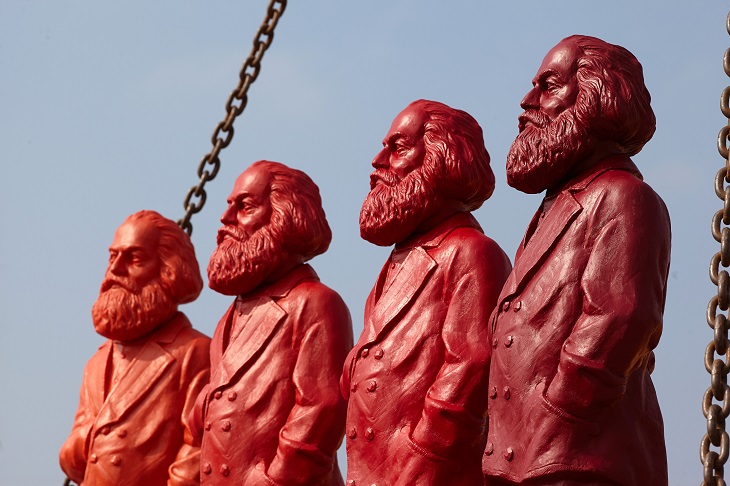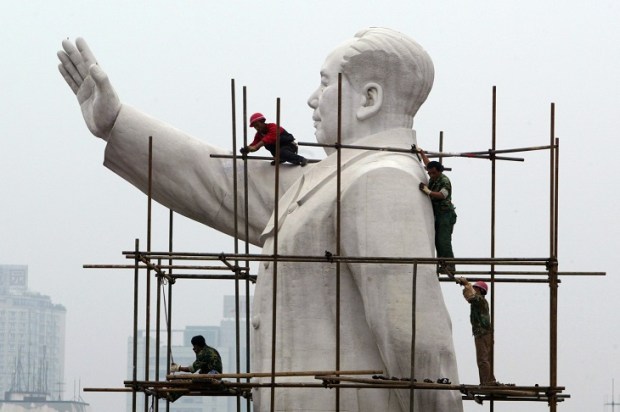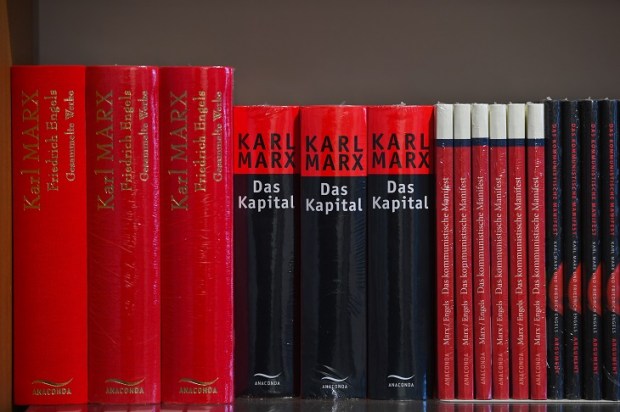This Easter, Australian Marxists are conducting their big shindig, Marxism Conference 2023, at Melbourne University. I’m attending.
It’s important to understand what the Left is arguing. Marxism is, without doubt, in the political ascendancy in Australia. Look at some simple facts.
Victorian Premier Daniel Andrews is from the socialist left of the Labor Party. Australian Prime Minister Anthony Albanese is also from the socialist left of the Labor Party. The Greens, who now hold a major deciding voting bloc in the Senate, can fairly be described as eco-socialists. They are certainly anti-capitalist.
Not so long ago, socialism was considered an outlier political movement, constrained somewhat to the fringe of politics and contained by the ‘common sense’ of free-market rationalism. Think of the economic rationalism of the Hawke/Keating Labor period.
But consider this more recent development.
In the November 2022 Victorian State Election, the Victorian Socialist Party stood candidates in ten of the 88 lower house seats. Its banner was ‘People before Profit’. Across those ten seats it averaged just on 7 per cent of the vote. That is, just under 49,000 people in those ten seats voted for a political party whose name contained the word ‘socialist’. That points to a sizeable political shift. Up until recently, voters’ knowledge of which candidates were socialists required an understanding of the internal factions within Labor and other parties. Now ‘socialism’ has come out and is no longer hidden.
This is significant. Melbourne has long been the heartland of radical, left, intellectual activism in Australia. So, it’s no surprise that this shift in the positioning of the left is being revealed most in Melbourne. Yes, it’s only an indicator, but maybe a strong one and one that can be detected across much of Australia, primarily in the capital cities. The Socialist Alternative is out in force at the conference. It has, it says, branches in every capital city in Australia.
Given this emerging trend, it’s important to understand what Marxists are saying. As with any political movement it is composed of multiple strands. This Marxism conference probably represents the more ‘left of the left’ strand of socialism. Certainly, there’s open anger on display at the conference towards Labor and the Greens for their ‘sell-out’ on recent energy legislation. Labor and the Greens are not ‘pure’ socialist enough for this collection of Marxists.
The crowd, and it is an impressive number of people in attendance, is heavily in the age group up to, say, their mid-thirties. But there’s a reasonable smattering of grey-haired types. There’s a wide mix across the sexes and racial spans. Very diverse.
I’ve been to Liberal Party and conservative-type conferences. They tend to be attended by ‘better’ dressed participants with a formalised approach to proceedings. I’ve also been to Labor Party conferences. They tend to be wild affairs with speakers routinely shouted down by some of the other participants. Great fun! This conference is well organised, polite, but very passionate in its tone – both in the presentation sessions and during breaks. There’s quality open discussion but also a common understanding that they all agree on one thing. Debate is contained within that ‘thing’ and that ‘thing’ is not challenged.
That ‘thing’ is the common understanding that every evil of society is a product of the capitalist system. There’s a ruling (rich) class and a working class. All institutions are capitalist created and designed to ensure that the working class serve the profit-making interests of the ruling class.
Any aged or even young student of politics will recognise this ‘thing’ as an old ‘thing’. And wasn’t this defeated as a legitimate idea with the fall of the Berlin Wall in 1989? But the other thing about this conference is the keenness, earnestness, and passion with which this central idea has been grasped as newly relevant.
This re-emerged relevance can’t and shouldn’t be ignored. It’s taken hold. It’s likely to spread. Don’t think it can’t become a major element in mainstream politics. In fact it’s arguable that it already has.
Fukuyama’s ‘The End of History’ is history. And at this Marxism conference, everything is history. Multiple sessions delve deeply into the historical background and reasons that prove the Marxists’ thesis. Dead white men (Marx and Engels) are the guiding hands to this conference’s railing against, and anger towards, all forms of oppression, of women, races, LGBTIQA+, and all and any minority.
Oppression is not an individual thing, it is explained. The Marxists’ definition of oppression, as outlined in one session, is a fairly nebulous concept and difficult to grasp. It took some hard listening to understand, but I think it is something like this.
Oppression is entirely a product of the working-class struggle against capitalism. Oppression is a collective thing, collectively experienced. An individual does not oppress another individual. The individual doing the oppression is simply doing what capitalist institutions require and have trained that individual to do. In this context, the person or persons being oppressed are not being oppressed by an individual or individuals but rather are being oppressed by the capitalist system.
The common enemy, therefore, is the capitalist system. All working-class people need to realise this. Therefore, oppression will not be stopped until the capitalist system is first brought down. But then a questioner asked: once the capitalist system is destroyed, won’t there still be some workers who will behave oppressively? The response was clear.
First, all workers need to go through a sufficient struggle against capitalism to realise that their attitudes and behaviours are a product of the capitalist system. Once they realise this, they will no longer oppress on an individual basis.
In the discussion that followed, this reasoning evolved further to the point, it seemed, of rejecting the genetic, animal, psychological, DNA of humans. That is (although not overtly stated) humans do not have base and despicable elements deep in their psychology that can lead them to do terrible things, including the oppression of others.
Is this what Marxism says? I’m not sure. But at this conference the issue of oppression always reverted to the fault being that of the capitalist system.
When looking at solutions to capitalism there was universal agreement in discussion sessions that national borders are a product of capitalist oppression. Borders are about the prevention of the free movement of people. Border controls are an instrument of the power of the ruling class. Hence agreement that refugee movement should be unrestricted and presumably that borders should be removed.
A question was asked about the state border closures during Covid 2020–22. Given that Australia is a federation of former colonies, which as a federation is committed to open state borders, how did these border closures fit with the Marxist, anti-capitalist revolutionary objective?
Marxism Conference 2023 is Covid-friendly. Mask-wearing is compulsory in all sessions. There was a brief silence until one participant answered from behind his mask that this was a health issue. Everyone agreed. No one asked if the border closures were ordered by the health ruling class of capitalist Big Pharma. The discussion moved on.
When a movement, no matter how old, finds new resonances it should not be ignored but rather understood. Marx’s identification of capitalism as the cause of all social and political evil has more than a 170-year history. It’s re-established its roots in Australian political psychology. This conference might portray an enthusiasm for the far end of the socialist spectrum. But elements of this far end can be found in much mainstream political thought.
The full program over three days involves enticing topics which in themselves give a flavour to the conference. The full list of topics is here.
Ken Phillips is Executive Director of Self-Employed Australia. He also publishes on Substack.
Got something to add? Join the discussion and comment below.
Get 10 issues for just $10
Subscribe to The Spectator Australia today for the next 10 magazine issues, plus full online access, for just $10.

























Comments
Don't miss out
Join the conversation with other Spectator Australia readers. Subscribe to leave a comment.
SUBSCRIBEAlready a subscriber? Log in